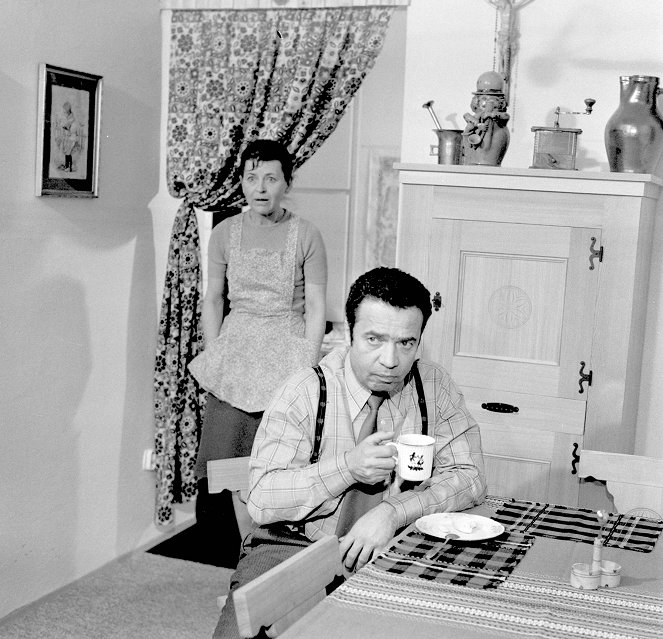Directed by:
Jaroslav DudekScreenplay:
Jaroslav DietlCinematography:
Jindřich NovotnýComposer:
Jan F. FischerCast:
Jiřina Švorcová, Petr Haničinec, Josef Langmiler, Dana Medřická, Jana Boušková, Jan Potměšil, Vladimír Menšík, Hana Maciuchová, Zdeněk Řehoř (more)Episodes(12)
-
Anna nastupuje (E01)
-
Příběh zeleninové Jiřinky (E02)
-
Příběh šéfova zástupce (E03)
-
Příběh řeznice Lady a skladníka Oskara (E04)
-
Příběh starého Dominika (E05)
-
Vítězství prodavačky Kaláškové (E06)
-
Příběh učednice Zuzany (E07)
-
Příběh dvou pokladních (E08)
-
Příběh důchodkyně Kubánkové (E09)
-
Příběh šéfova syna (E10)
-
Svatba lahůdkové Olinky (E11)
-
Vánoce Anny Holubové (E12)
Reviews (1)
A showcase of normalization that perfectly serves the purpose of building the illusion of utter historical stagnation. Every day the sun rises, the counters are full, there's always a line in front of the deli, and everyone has to take a basket into the store. No one shows any ambition to step out of this static existence, and everyone enthusiastically accepts their role of polishing apples for the rest of their lives. This masquerade in a crowded lonely house, creating cute subplots like Stašová stressing or Hanzlík wooing, is just fun. Even though Menšík really needs subtitles here, and the makeup artist must have been applying powder to these characters while obviously drunk. But there is another side to the series, a dark, horror side. The interpersonal side. That's really the only variable in an otherwise immobile historical setting. Here, it is natural to count down the seconds from the wedding until the husband cheats on his wife, virtually all lasting relationships are more or less in ruins, and on the throne of life's ruin stands the sweet shop proprietor Anna – Jiřina Švorcová, a vamp of the grey normalization. Together with Haničinec they form safely the most asexual duo in the Milky Way. Two-thirds of the relationship is spent in Haničinec's Škoda MB, Švorcová's ever-arching eyebrows, a retarded son and manipulative daughter at home, plus a swaggering ex-husband who wants her back and she can't do anything about it because the kids love him. And I haven't even mentioned the fact that the whole thing is shot in a khaki color palette. So in the end, a show that was supposed to celebrate socialist normalcy and its little human stories is more of a suffocating psychological horror about how there is a natural bleakness to a rigid environment you can’t escape. Bravo Dietl!
()

